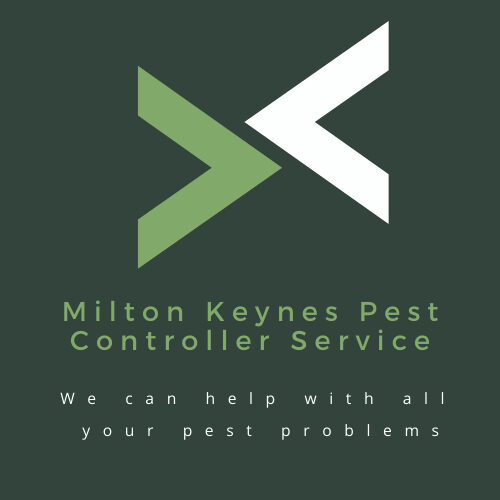Flea Control in Buckinghamshire: Keeping Your Home and Pets Safe
Fleas are tiny, blood-feeding pests that can become a major nuisance for both homeowners and their pets in Buckinghamshire. These resilient insects can multiply rapidly, causing discomfort, itchiness, and potential health issues for your beloved animals. In this article, we will explore the importance of flea control in Buckinghamshire and strategies to keep your home and pets flea-free.
Understanding the Flea Problem
Fleas are small, wingless insects known for their ability to jump long distances. They feed on the blood of mammals and birds, causing itching, irritation, and sometimes allergic reactions in both pets and humans. Buckinghamshire’s temperate climate provides an ideal environment for fleas to thrive year-round, making flea control a critical concern for pet owners and homeowners alike.
Common Signs of a Flea Infestation
- Frequent Scratching: Pets suffering from fleas often scratch or groom themselves excessively.
- Visible Fleas: Adult fleas may be seen on your pet’s fur or in your home.
- Flea Dirt: Tiny black specks, known as flea dirt or feces, can be found on your pet’s skin or in their bedding.
- Red Bites: You or your pets may develop red, itchy bites on the skin.
- Restlessness: Pets with flea infestations may exhibit restlessness, nervousness, or discomfort.
Strategies for Flea Control in Buckinghamshire
- Pet Treatments: Consult your veterinarian for suitable flea control products for your pets, such as topical treatments, oral medications, or flea collars.
- Regular Grooming: Regularly groom and comb your pets, disposing of any fleas or flea dirt that you find.
- Wash Bedding: Wash your pet’s bedding, as well as your own, in hot water to kill fleas and their eggs.
- Vacuuming: Vacuum your home regularly, paying special attention to carpets, rugs, and upholstered furniture. Empty the vacuum bag outside to prevent fleas from re-infesting your home.
- Outdoor Maintenance: Keep your yard and outdoor areas well-maintained to reduce flea habitats.
- Professional Pest Control: If the infestation is severe or persistent, consider hiring a professional pest control service in Buckinghamshire.
Preventing Future Infestations
Preventing flea infestations is essential for the well-being of your pets and the comfort of your home. Implement these preventive measures:
- Year-Round Vigilance: Continue flea prevention measures year-round, as fleas can thrive in Buckinghamshire’s climate.
- Regular Check-ups: Schedule routine check-ups with your veterinarian to monitor your pet’s health and ensure they are free from fleas.
- Outdoor Control: Treat your yard with flea control products to prevent outdoor infestations.
- Education: Educate yourself about fleas and their life cycle to better understand how to prevent and address infestations.
Conclusion
Flea control in Buckinghamshire is crucial for the comfort and health of both your pets and your family. By recognizing the signs of infestation, implementing effective control strategies, and taking preventive measures, you can create a flea-free environment in your home. Don’t hesitate to consult your veterinarian and, if needed, seek professional pest control assistance to address flea problems promptly and effectively.
Please request a quote here or contact us on 01908 465226
About Fleas
For every flea that lives on your cat or dog there will be 99 more starting to develop in your carpet and at some point in their lives you animal will suffer an infestation so you need to kill fleas in your carpet urgently.
Their saliva is considered to be one of the most allergenic substances as it can cause a skin disease in pets which is called Flea Allergic Dermatitis (FAD) Also when fleas bite they take in blood and if the infestation is severe it could cause anaemia in puppies and kittens or even death.
Fleas can live between 7 and 14 days and will divide their time between living on your pet to feed and returning to your carpet to lay more eggs and this happens every day. The larvae then get’s buried into carpets and upholstery and can lay dormant for several months. When the adults sense warmth and vibrations they will jump onto your pet and start the cycle over again.
Spotting Fleas in your Home
The most obvious sign of fleas will be that your pet is continuously scratching, you should also be able to see them in the fur of your pets, they are dark brown in colour and are approximately 1 – 2mm long, you should also find tiny black specks of flea dirt on your pet just under their fur. The height of the summer is when fleas are most rife; however they can be just as bad in the winter if you have a warm central heated home.
The winter time is the best time to de-flea your pet and just before the beginning of the summer. A continuous de-fleaing of your pet will keep them to a minimum.

Frequently asked questions (FAQs) about flea control in Buckinghamshire:
1. What are fleas, and why are they a concern in Buckinghamshire?
- Fleas are small, blood-feeding insects that can infest pets and homes. They thrive in Buckinghamshire’s temperate climate, making flea control essential for pet owners and homeowners.
2. How do I know if my pet has fleas?
- Common signs of flea infestation in pets include excessive scratching, visible fleas, flea dirt (black specks on fur), red bites, and restlessness. If you suspect fleas, consult your veterinarian.
3. Can fleas infest my home even if my pet doesn’t have them?
- Yes, fleas can enter your home through other means, such as from outdoor environments or contact with other infested animals.
4. What should I do if I find fleas on my pet?
- Consult your veterinarian for suitable flea control products for your pet. This may include topical treatments, oral medications, or flea collars. Additionally, clean and wash your pet’s bedding and vacuum your home thoroughly.
5. How can I prevent fleas in my home and on my pets?
- Preventive measures include year-round flea control for your pets, regular grooming, washing pet bedding, vacuuming your home, treating your yard, and consulting your veterinarian for guidance.
6. Are over-the-counter flea control products effective?
- Some over-the-counter products may be effective, but it’s essential to consult with your veterinarian for recommendations tailored to your pet’s needs.
7. Can fleas transmit diseases to humans or pets?
- While rare, fleas can transmit diseases like Bartonella (cat-scratch fever) and tapeworms. It’s essential to address flea infestations promptly to minimize health risks.
8. How often should I treat my yard for fleas?
- The frequency of yard treatments depends on the severity of the infestation and the products used. Consult a pest control professional for guidance on outdoor flea control.
9. What should I do if my flea infestation persists despite my efforts?
- If your flea problem is severe or continues despite your efforts, consider contacting a professional pest control service in Buckinghamshire experienced in flea control.
10. Can fleas become resistant to treatment methods?
- Fleas can develop resistance to certain treatments over time. It’s advisable to consult with your veterinarian or a pest control expert to choose effective products and strategies.
11. Are there natural or non-toxic methods for flea control?
- Yes, there are natural and non-toxic flea control methods, including herbal remedies, diatomaceous earth, and flea-repelling plants. Consult your veterinarian or pest control professional for guidance on safe options.
12. Is year-round flea prevention necessary in Buckinghamshire?
- Yes, year-round prevention is recommended due to Buckinghamshire’s climate, which can support flea populations throughout the year.
Remember that effective flea control involves a combination of preventive measures, prompt treatment, and, if needed, professional assistance to ensure a flea-free environment for your pets and your family.




